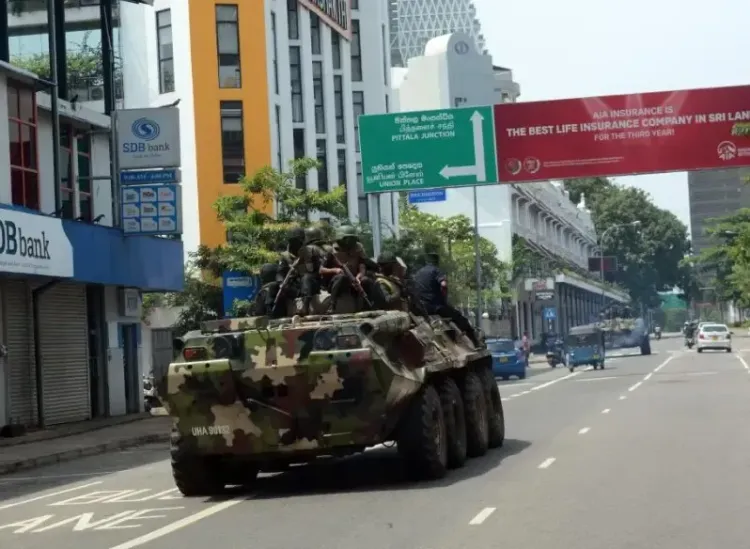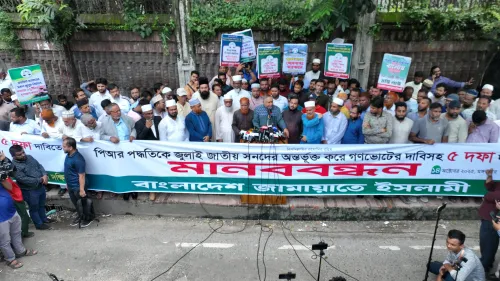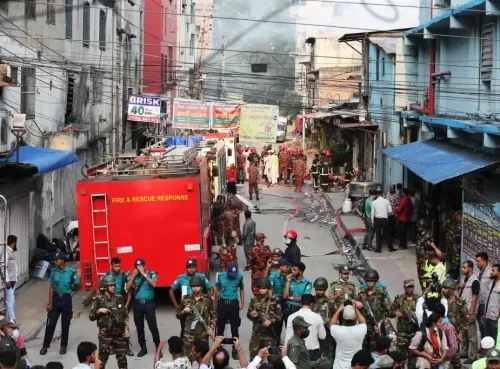How Did Sri Lanka's Tax Policies Fuel the 2022 Economic Crisis?

Synopsis
Key Takeaways
- Sri Lanka's tax policies have been linked to the 2022 economic crisis.
- The country faces chronic underfunding in education and public services.
- HRW urges reforms for a progressive tax system.
- Investment in education is critical for the nation's recovery.
- Government action is needed to meet human rights obligations.
New York, Oct 15 (NationPress) The advocacy organization Human Rights Watch (HRW), based in the United States, has disclosed that Sri Lanka's tax strategies significantly contributed to the nation's catastrophic economic crisis in 2022, which in turn exacerbated the persistent underfunding of education and essential public services.
In their comprehensive 101-page analysis, titled 'Tax Handouts, Struggling Schools: The Impact of Low Taxes on Sri Lanka's Economic Crisis and Educational Decline', HRW outlined how consecutive Sri Lankan administrations implemented policies that led to insufficient revenue generation.
These policies, according to the rights organization, not only precipitated Sri Lanka's debt default but also caused a prolonged downturn in public education investment as a percentage of Gross Domestic Product (GDP), positioning the country among the lowest globally in this regard.
“For many years, Sri Lanka has been trapped by economic strategies that deprive the government of essential revenue, focusing narrowly on GDP growth,” stated Sarah Saadoun, a senior economic justice researcher at HRW.
“This has resulted in education funding lagging significantly behind growth rates, transforming the nation from a global pioneer in public education to a slow mover,” she added.
The report emphasized that the education sector exemplifies a broader disregard for social investment, with the squandered potential most apparent in a domain where Sri Lanka once enjoyed global acclaim.
HRW noted that the new government of Sri Lanka has undertaken some commendable initiatives, such as providing bursaries of Sri Lankan Rupees 6,000 (approximately $20) to certain families to assist with educational expenses; however, the education budget has seen only marginal increases.
“It is imperative to further enhance the education budget, aiming for the internationally recognized target of allocating 4 to 6 percent of GDP to education,” urged the rights organization.
HRW called on the Sri Lankan government, under the leadership of President Anura Kumara Dissanayake, to promptly implement measures that uphold human rights obligations and reform a system that currently benefits corporations and the affluent while failing to yield sufficient revenue.
“Sri Lanka's economic predicament illustrates that mere growth is inadequate to fulfill human rights,” emphasized HRW senior researcher Saadoun.
“The government must finally create a progressive tax structure and allocate its income to adequately support education and public services that benefit all Sri Lankans,” she concluded.









